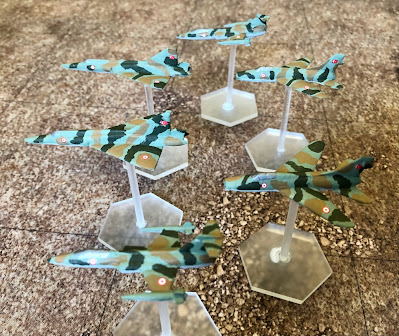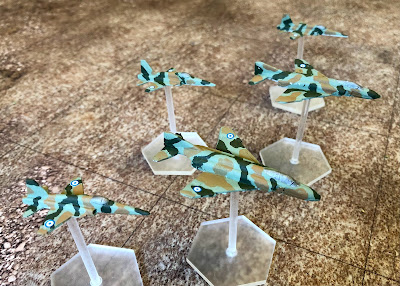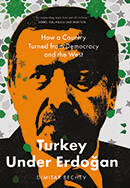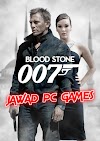As I am off to Turkey in a few weeks, I thought now would be a good time to better understand modern Turkey. A new book by Dimitar Bechev covers Turkey under its current President, Recep Tayyip Erdoğan. His previous book on Russia in the Balkans was objective, balanced and a good read. He is also an insightful and often amusing commentator on Twitter. This book is written to the same high standard.
Bechev reminds us in the introduction that Turkey's transformation from electoral democracy to a competitive authoritarian regime was not the way it looked when Erdogan first came to power. It also has to be seen in the context of the long-term structural and institutional forces shaping Turkey's domestic politics and, by extension, foreign policy.
Erdoğan's rise to power with the AKP (Adalet ve Kalkınma Partisi, Justice and Development Party) came out of Turkey's 'lost decade' of the 1990s. An economic crisis, heavy military losses fighting the separatist Kurdistan Workers' Party (PKK), and accession to the EU being blocked - topped by an earthquake that killed more than 17,000 people. The AKP and its predecessors championed the ordinary people against the establishment, promising to carry forward Europeanisation and economic reform while sweeping out the old elite. Even if the playbook was similar to a previous President, Turgut Özal. There is a blend between the market, Islamic piety, and some acceptance of ethnic diversity and clientelism.
In the early period, Erdoğan was focused on EU membership, and Parliament passed many of the democratic reforms required of an accession country. This also suited the AKP as it reduced the military's role in Turkish politics. This is covered in more detail in Metin Gurkan's book, which shows that military attitudes were changing anyway. However, EU membership negotiations collapsed due to disputes with Greece in the Aegean, the Cyprus issue and opposition from major European states such as France. The EU's accession of the Greek Cypriot state, despite their rejection of the Annan Plan, was a tough blow.
The AKP benefitted from economic growth in the 2000s. GDP grew by 7.2% per annum between 2002 -07 compared to 2.4% in the 1990s. In foreign policy, the AKP argued that they could seek EU membership while also strengthening ties with its middle eastern neighbours and beyond, playing to its Ottoman legacy. Rather than a Western periphery, Erdoğan's Turkey imagines itself as the centre of its own universe spanning the Middle East, the Balkans and the Southern Caucasus, all the way to sub-Saharan Africa. This includes a growing military presence in Syria, Libya and even naval bases in Africa. More topically, it has incorporated stronger relations with Putin's Russia, including the purchase of Surface to Air missiles and the Turkstream gas pipeline. As other authors have described, they joined together in 'an axis of the excluded.'
The AKP's second and third terms (2007–15) boils down to how a Machiavellian leader grabbed power, dismantling institutional constraints that checked his unbridled ambition. Erdoğan did not miraculously turn from an exemplary democrat to a Putin lookalike overnight. He evolved over the years, although the failed military coup gave him the excuse to clamp down on the opposition strengthen control over the media and the other institutions of a functioning democracy. The amendments to the Turkish constitution created an all-powerful presidency, abolished the prime minister's office, and reduced the power of Parliament. There is nothing wrong in principle with a strong presidency, but Turkey's new constitution has few of the necessary checks and balances.
While all this sounds pretty grim, Bechev finishes with some optimism that democracy is not dead and even religious conservatism is on the decline. The opposition has made impressive gains in local elections, capturing four of the five major cities, including Istanbul and Ankara. The economy is in trouble, and even the tame media cannot hide every corruption scandal. Ramping up repression is the usual playbook of strongmen who are losing electorally, playing to the fault lines in Turkish society and its foreign policy challenges. However, complete separation from the West is not likely despite the rhetoric. Clear majorities within the country support continued membership in NATO, and economic hardship has broadened the appeal of the EU, which Turkey remains linked to through the customs union.
Turkey is a beautiful country with great people and a stunning heritage. So, let's be optimistic yet informed. This book is a good starting point for that process.
I have been collecting more modern Turkish figures for my lead pile. However, current events have put me off painting these for the wargame table. So, this week's painting goes back to 1974 with 1/300 scale Hellenic and Turkish Air Force jets. There is only one recorded incident of Greek fighter aircraft intervening in Cyprus, which I suspect might have been friendly fire. Flight time over Cyprus for a fighter from Crete would have been around five minutes. However, the Turkish Air Force deployed a whole tactical force in western Turkey in case of Greek intervention. So, air battles over the Aegean was a possibility. Both air forces adopted the NATO standard camouflage during this period, which along with some crossover in aircraft types, would have been a challenge. I used slightly larger decals to help identification and to make it easier for my eyesight and large fingers!
 |
| Turkish Air Force Delta Dagger, F-100 and Starfighters |
 |
| Hellenic Air Force Phantom and Northrop fighters. |








0 Comments